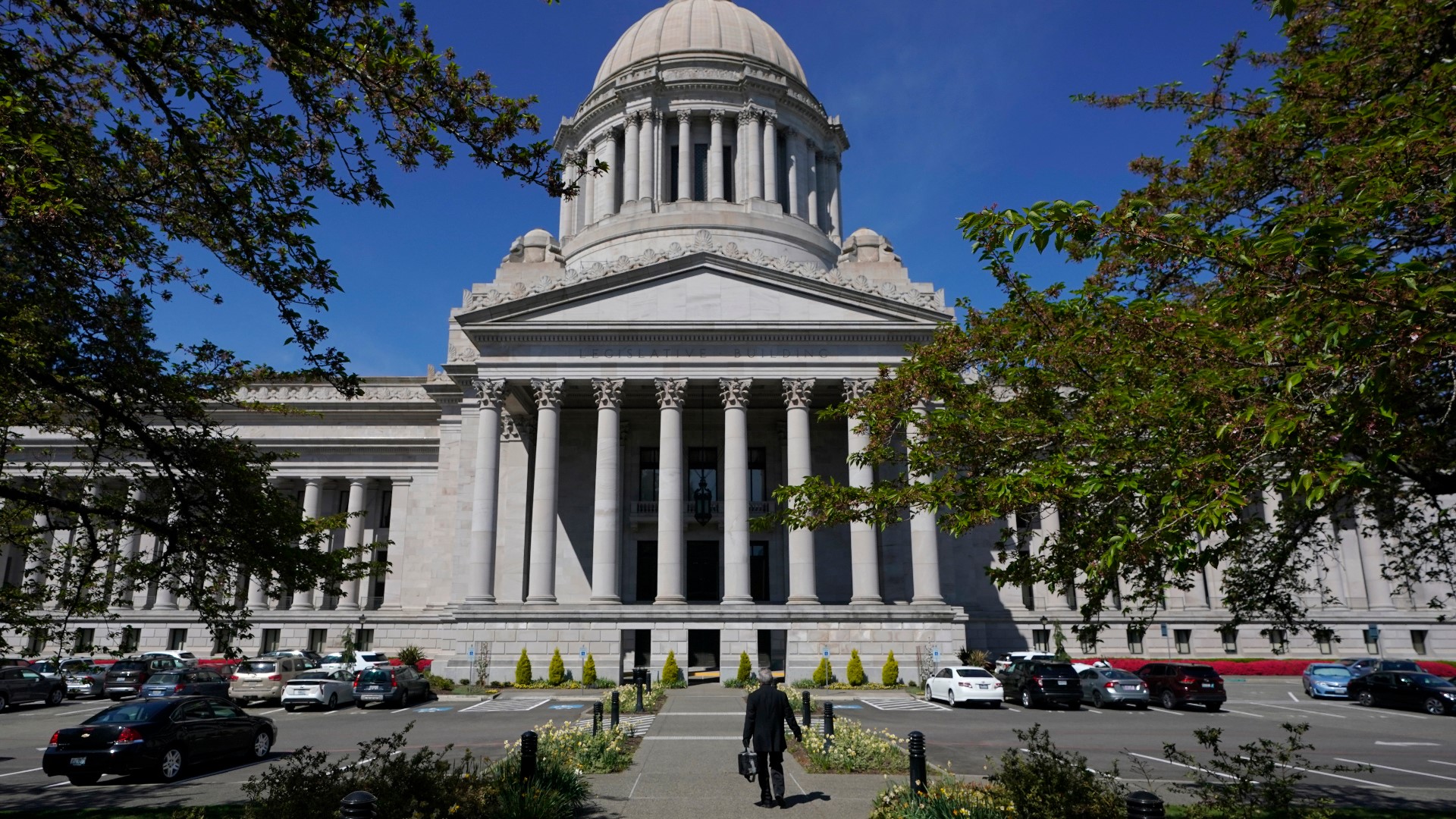OLYMPIA, Wash. — The Washington State Senate introduced a nearly $70 billion operating budget Thursday increasing funding for public education, housing and homelessness and more.
The two-year $69.2 billion operating budget includes $5.1 billion in new spending in education, housing, behavioral health, public safety and climate change with $3.8 billion set aside for reserves.
According to the proposal, the $5.1 billion in new spending does not rely on any new taxes or fees, and the $3.8 billion is set aside to guard against economic slowdown.
“This is an ambitious and responsible spending plan to address the state’s most pressing needs while taking historic steps to protect our environment and build a clean energy economy,” said Sen. Christine Rolfes (D-Bainbridge Island), chair of the Senate Ways & Means Committee.
Education
Part of the $5.1 billion includes $2.9 billion toward the state’s public schools. The proposal also includes $353 million for special education services and $106 million for affordable early learning.
The investments include $525 million for educator salaries and health care costs, $215 million to support the childcare workforce, $59 million to expand food access in schools and more.
Sen. Rolfes said the additional spending should help districts looking at layoffs and campus closures to make up for budget shortfalls.
"Especially the special education boost," said Rolfes, "That's funding the schools have been spending, but taking out of the levies so it's actual, real relief."
Housing
According to the proposal, roughly $298 million will go toward housing and shelter for the state’s homeless population.
Part of the $298 million includes $85 million for emergency housing and rental assistance, $56 million to support operations in permanent supportive housing, $32 million for local government grants to support affordable housing and $8 million to help children experiencing homelessness.
Behavioral health
$424 million in new spending will go toward transforming the state’s behavioral health system, according to the proposal.
It includes $116 million to expand treatment at state-operating facilities, $84 million to increase behavioral health provider rates, $23 million for behavioral crisis outreach, and diversion, and funding for community-based housing.
“We know our communities are still feeling the effects of the pandemic, and this budget reflects our continued commitment to making targeted investments that help our neighbors rebound stronger,” said Sen. June Robinson (D-Everett), vice chair of the Ways & Means Committee. “That’s why our proposal includes much-needed support for housing and behavioral health — areas where many of our neighbors continue to struggle. These investments help build a healthier, more resilient state for all.”
Public safety
The proposed budget also looks to enhance public safety funding with new spending on reentry services for incarcerated people, creating a new organized retail theft task force and adding support for the state’s firearm violence prevention agency.
The new spending also includes $7 million to open new regional law enforcement training centers, $5.5 million for work release programs, $4.5 million for enhanced training for corrections officers and more.
$650,000 in new spending is also included to help address the number of missing and murdered indigenous women and people.
Climate change
The budget will invest $679 million of proceeds from the Climate Commitment Act, passed in 2021, in clean energy projects, energy-efficient homes and buildings, and carbon sequestration, which is the process of capturing, removing and storing carbon dioxide from the atmosphere.
Part of the $679 million includes $218 million for carbon sequestration, $145 million to provide utility assistance to low-income families and reduce the carbon footprint of state-owned buildings, $126 million to help transition heavy-duty trucks to clean energy, and more.
Sen. Chris Gildon (R-Puyallup) said he was "especially pleased" that the budget did not rely on any new taxes.
"I hope that's something that the House takes to heart," said Gildon, "That they can develop a budget without additional taxes this year."
House budget writers will release their budget proposal next Monday.

